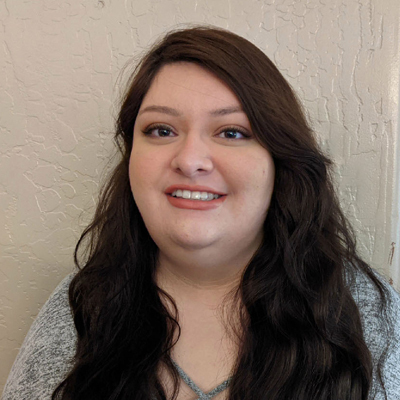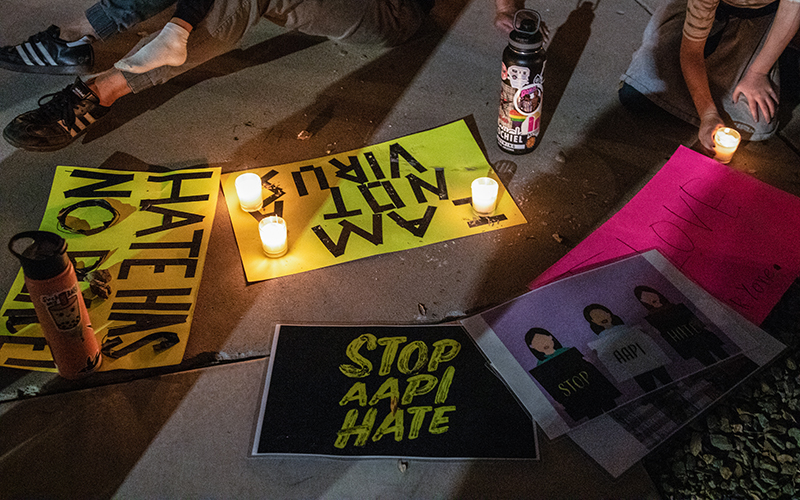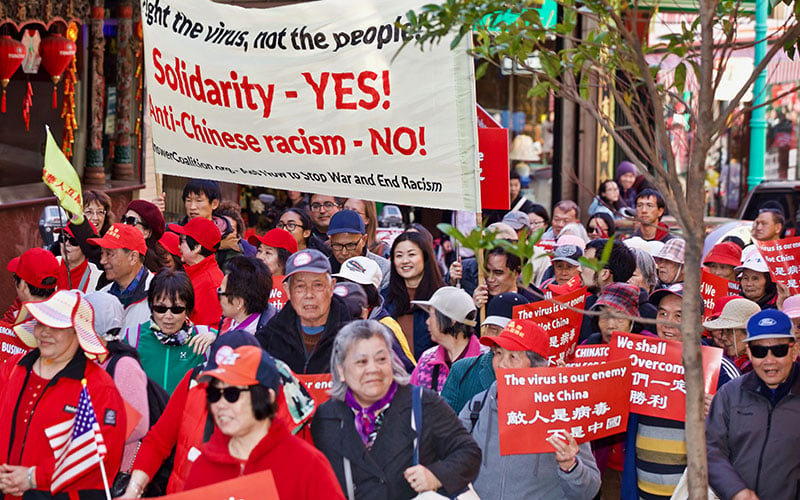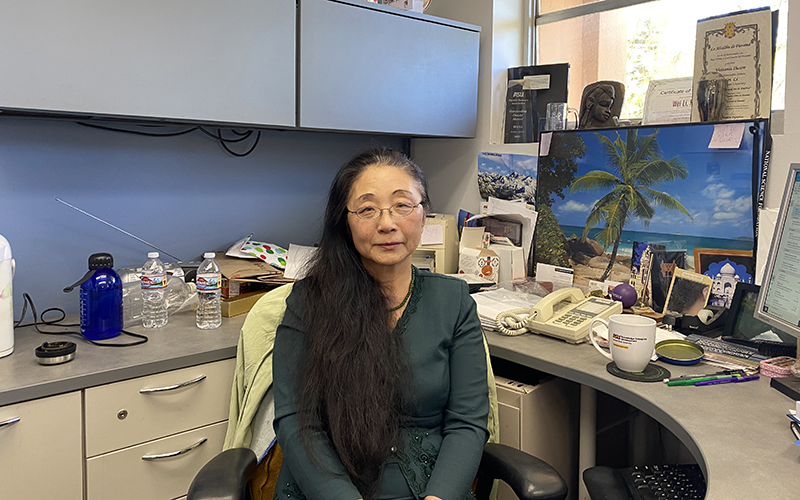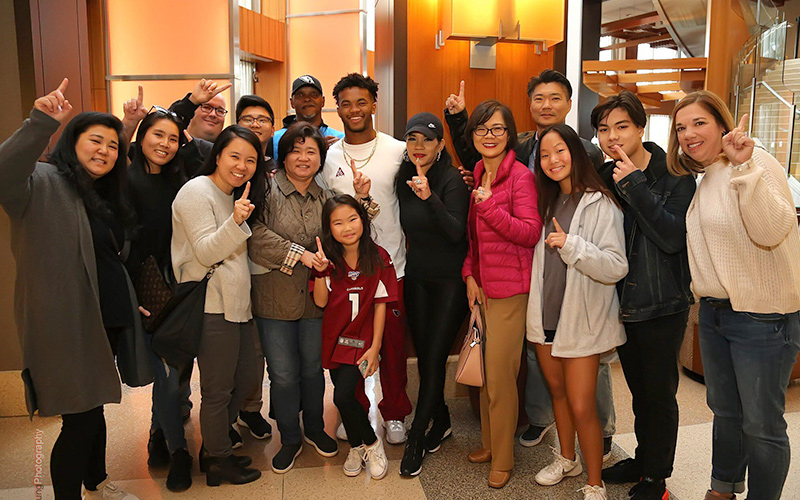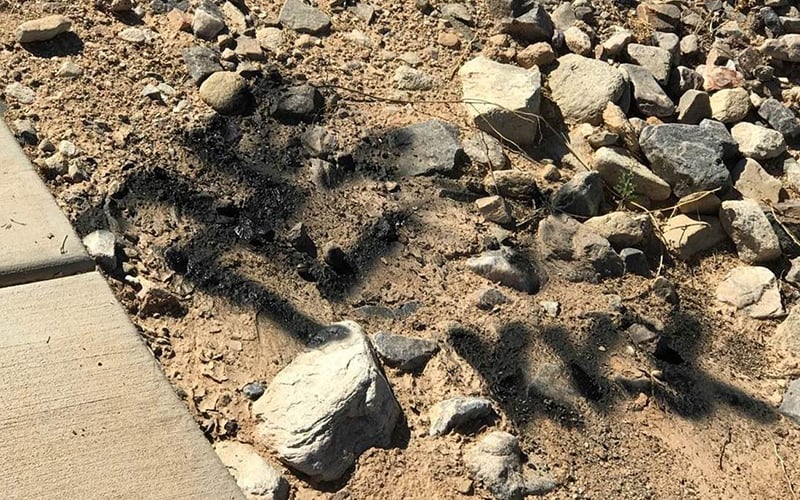PHOENIX – Atlanta police say it’s too early to say whether Tuesday’s shooting rampage, which left six women of Asian descent dead, was a hate crime. But there’s no question that hate is on the rise for many Asian Americans, who are frightened but not surprised by such attacks.
The incident – authorities say a 21-year-old white man from Georgia shot and killed eight people at three Asian-owned businesses – is the latest in an alarming spate of violence against Asian Americans from coast to coast, from elderly Asians in San Francisco to stabbings in New York City, over the past year.
Leaders of Arizona’s Asian American community are worried.
“I am frustrated for my community, my parents, my children. This was an act of domestic terrorism, and too many leaders have been silent about the atrocities that have happened to our community,” said Vicente Reid, CEO of the Arizona Asian Chamber of Commerce. “We cannot ignore the significance of this act and others in recent weeks.”
Reports of discrimination extend to the beginning of the pandemic, when the former president began mocking and vilifying Asians by describing COVID-19 as “kung flu” or “the China virus,” but they have worsened in 2021. Across the country, advocates for the Asian American Pacific Islander community say the number of attacks against them have been on the rise.
From March 19, 2020, to Feb. 28 of this year, 3,795 incidents of verbal or online harassment, assaults, and civil rights violations targeting Asian Americans were reported to Stop AAPI Hate, a coalition formed to address anti-Asian discrimination during the COVID-19 pandemic. Of that number, 503 incidents took place in the first two months of 2021 alone.
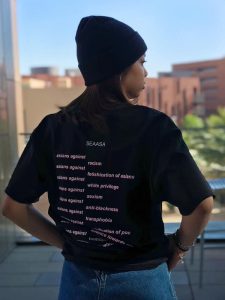
“As citizens, we are often overlooked,” says Linda Keo, senior adviser for the Southeast Asian American Student Association, which promotes cultural awareness and understanding of the Southeast Asian cultures at ASU. (Photo courtesy of Southeast Asian American Student Association)
In Arizona, the group tallied 43 incidents of discrimination targeting people of Asian descent since the pandemic was declared in March 2020.
Stop AAPI Hate found that Chinese are the largest ethnic group (42.2%) to say they’ve experienced hate, followed by Koreans (14.8%), Vietnamese (8.5%) and Filipinos (7.9%).
Verbal harassment (68.1%) and shunning (20.5%), which entails the “deliberate avoidance of Asian Americans,” are the top types of discrimination reported.
Those types of discrimination are rarely reported to police, and the Phoenix Police Department said in 2020, officers investigated three incidents involving bias crimes against people of Asian descent, up from two the year before.
In addition to the department’s Bias Crimes Unit, a detective from the Community Response Squad is assigned as a liaison to the Asian community, Sgt. Ann E. Justus wrote in an email this week.
“Throughout 2020, that detective has been a direct line of communication for leaders in the Asian community,” Justus said. “No concerns about their safety were relayed to the detective.”
Recently, she said, the detective proactively reached out to those community leaders to start a dialog for future meetings and share safety tips.
Both hate incidents and hate crimes likely are underreported, according to Aggie Yellow Horse, assistant professor of Asian Pacific American studies at Arizona State University and research director for Stop AAPI Hate.
“Not only because some victims do not report their experiences, but also because their reports can also be not taken seriously by the authorities,” she said.
Other reasons victims may choose not to report hate crimes, Yellow Horse said, include feeling too overwhelmed to formally report, not knowing where and how to report, language barriers, lack of transportation access and distrust of law enforcement.
CORRECTION: A previous version of this story contained inaccurate information about the group hosting a candlelight vigil at the state Capitol on March 19. The Arizona Asian American Native Hawaiian and Pacific Islander for Equity Coalition hosted the event. Find the full correction here.
The Arizona Asian American Native Hawaiian and Pacific Islander for Equity Coalition, a community group that describes its goal as “working to include the Pan-Asian and other marginalized communities in the decision making process,” has worked to raise awareness about racism toward Asians. On Friday, the group hosted a candlelight vigil at the Arizona Capitol to honor the eight people slain in Atlanta.
In Phoenix, the Arizona Asian Chamber of Commerce regularly provides resources to businesses, and it plans to reach out to elderly Asian Americans.
Reid feels the recent increase in hate crimes is due to a lack of federal and state leadership.
“Words matter. Unfortunately, we have had a previous administration who felt the perverse desire to blame their failures on others,” he said. “Unfortunately, we have plenty of local leaders who allow such heinous acts to continue through either inaction, silence, or just blatant disregard for their constituents.”
The Asian American Journalists Association notes that Asian women in particular face “a long history of hypersexualization … that is rooted in Westernized and colonial perceptions of Asia.”
Linda Keo, senior adviser of ASU’s Southeast Asian American Student Association, points to abuse during World War II when Japanese soldiers forced Korean women into sexual slavery as “comfort women” as a key to understanding some of the unique violence and fetishization faced by Asian women.
“A lot of people say the (Atlanta) shooting was a hate crime,” Keo said. “But I think people need to look at this even deeper and realize that it was a hate crime against Asian women specifically. It’s because of the deep-rooted stereotype that Asian women are there for pleasure.”
Now more than ever, ASU students are taking the initiative in conversations about the racism they experience.
Yellow Horse said her students are making the connections to how they are tied to their own experiences or observations of anti-Asian hate and bias during this time.
“I observe that students are really responding to each other’s stories with more care and appreciation,” she said, “and although increased anti-Asian hate and bias have increased stress for many, they also have been creating more opportunities for students to talk about the importance of care, collaboration, and solidarity.”
Yellow Horse warns against the idea that more police will result in more safety.
“Without understanding the historical contexts and engaging in difficult conversations within and across communities, I do not think there is a simple and quick ‘fix all’ solution to what is happening. I can’t stress enough that the solution to end these incidents is not more policing and surveillance in our own communities.”
Instead, Yellow Horse looks to such cities as San Francisco, where community members organized a response to the violence by offering foot patrols instead of increased policing. Many of the volunteers were Black, Indigenous and other people of color in the community.
For the younger generation, Keo said, the Asian community too often is overlooked.
“When COVID-19 hit a year ago, no one really took racism (against Asians) seriously,” she said. “Why do we have to wait till lives are lost to begin taking action?”
Incidents of discrimination can be reported at STOP AAPI Hate.
